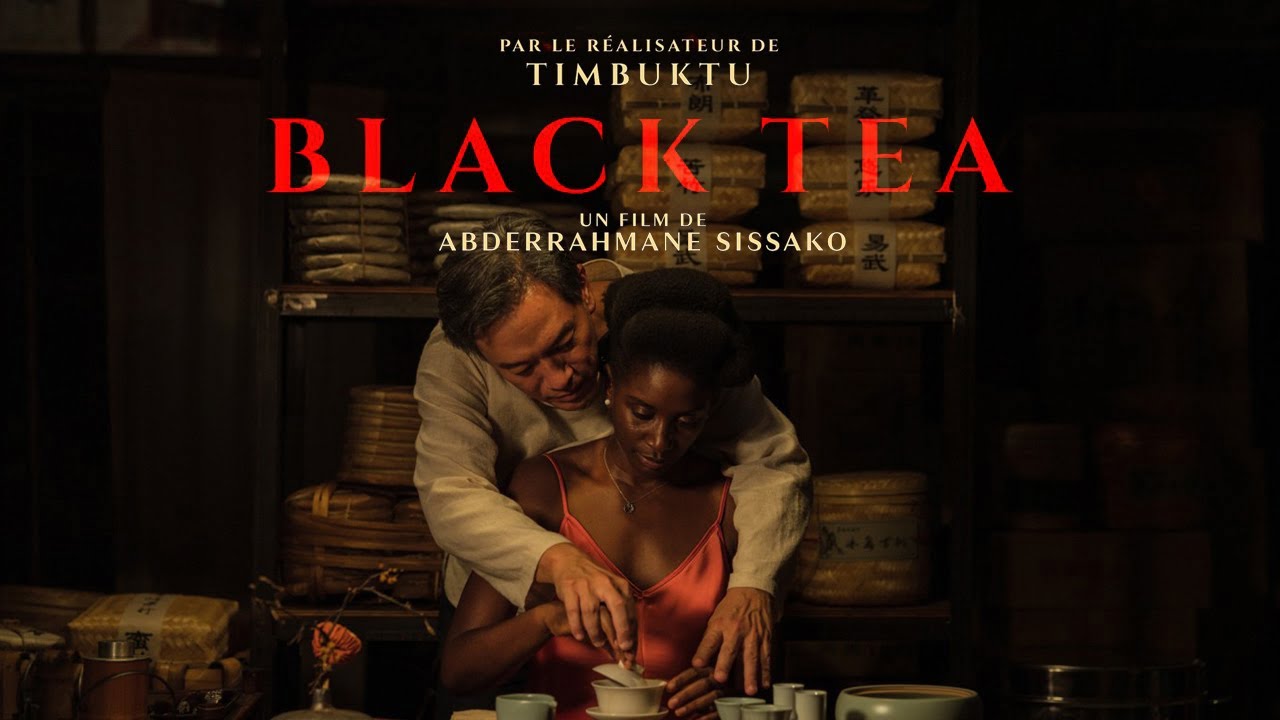Black Tea Review
Since his 2014 Oscar-nominated film “Timbuktu,” the Mauritanian director has made a meandering road trip from the Ivory Coast to China to Cape Verde, but he never quite finds his footing.
Tea can be an upper or a downer. The latter would be “Black Tea,” the first movie in a decade from veteran Mauritanian filmmaker Abderrahmane Sissako, which drinks only from the bottom shelf starting with chamomile-type calm and moving into flat out sleepytime territory. And if that seems like a trite metaphor for the beverage, this tepid Berlinale competition entry has plenty more where it came from: A love story between a Chinese tea-shop owner and an Ivory Coast émigré rooted in rituals of brewing and consuming the blessed leaves, the film goes for woozy sensualism but comes up way short on ambient richness and X-factor chemistry required to sell such an essentially confected exercise.
It’s mystifyingly wrong-headed work from Sissako, such a formally and politically forceful filmmaker; by its end, “Black Tea” feels closer to an eon than 10 years removed from 2014’s exquisite, devastating “Timbuktu.” Though already secured for imminent release in France Sissako’s adoptive home country, where “Timbuktu” premiered at Cannes and reigned over the Césars in its year as well as U.S. distribution via Cohen Media Group, it’s hard to see arthouse crowds scrambling for this much lesser curio that oddly skimps on sensory spectacle you might expect of a film trying to do for mountain oolong what “The Taste of Things” did for baked Alaska.
An opening sequence set though not obviously established in Abidjan holds out both sly promise and stray hints of what is to come off-formally. On the creamy satin slopes of a billowing wedding dress, an (inescapably CG-rendered) ant blazes a trail before being swatted out of existence. We learn that the wearer is Aya (Nina Mélo), who sits beside her betrothed Toussaint (Franck Pycardhy) in an overcrowded, overheated mass wedding hall; her visage suggests she’d sooner be the ant, abrupt end and all. At the altar, she tells Toussaint with maximum politesse that their futures don’t include one another, then turns on her heel and strides down Abidjan’s crowded market lanes.
Those street scenes are gradually overlaid with images from another corner of the world eventually discernible through the murk as Guangzhou, where Aya resurfaces in a statement red gown and Afro hairdo as Malian singer Fatoumata Diawara’s part-Bambara cover of Leslie Bricusse standard “Feeling Good” fills the soundtrack. The much-covered song, made a paean to thriving Black womanhood in Nina Simone’s definitive 1965 version, is an oddly leaden choice from a more elegantly suggestive filmmaker; still, it broadly accounts for Aya’s motivation and journey to China. Mélo brings disarming but rather opaque conviction to a role that suggests an itchier, unarticulated purpose in her departure from Africa than mere one-way escape some kind of spiritual peace that has eluded her on home turf
At least she can find what she needs in Chocolate City, a part of Guangzhou where Africans and Chinese market traders intermingle. The tea shop that Cai (Chang Han) runs elegant, low-lit is especially attractive to her; he’s a middle-aged local with the snugness of his community around him but a thousand-yard air of wistful loneliness about him. Both are outsiders in their own way, she geographically so, he by self-imposed distance. But they recognize in each other a common desire soon enough. And as love comes alive, so do their souls, slowly and patiently, like tea leaves steeped in water. Or such is the metaphor Sissako employs here. Its central romance may be sympathetically reserved, but also rather inert: There’s no spark of passion between these two cautious lovers; no conflict that isn’t calmly and instantly resolved; no shade or quirk that makes either character particularly interesting at rest.
When Pilarski lit Quan’an Wang’s 2019 Berlinale entry “Öndög,” it gave proceedings a panoramic mystery. Here, too, he lights with painstaking care attentive to the tone and glow of different skin colors. But there’s a hard crispness to the digital images that occasionally works against them whenever they swing for dreamy immersion: Every now and then cigarette smoke or steam from the tea will cloud up before the lens, and we’ll get an attempt at some Wong Kar wai atmospheric haze that doesn’t quite feel natural to Sissako’s filmmaking. A trip out to a green tea plantation one afternoon feels like a vacation from this otherwise stately film suffocating under itself in China its undulating hedges curving around hill under magic-hour light might be just what Black Tea needed all along.
The film is kept alive when this love story slows to complete dewy-gazed stasis by subplots involving other gentle natured residents of Chocolate City and Cai’s slightly wounded ex-wife Ying (Wu Ke-Xi) and their two kids, one a dutiful son (Michael Chang) who works in the shop with him, the other a mysteriously estranged daughter in Cape Verde. None of these secondary characters are drawn in especially interesting detail, and though there’s more interest in the collective social hum of the night market street where most of the film takes place, it’s realized in an airless way that doesn’t do much to liven up this film shot in Taiwan instead of China.
Watch Black Tea For Free On Gomovies.


.jpg?w=1024&resize=1024,1024&ssl=1)
.jpg?w=1024&resize=1024,1024&ssl=1)
.jpg?w=1024&resize=1024,1024&ssl=1)
.jpg?w=1024&resize=1024,1024&ssl=1)
.webp?w=1024&resize=1024,1024&ssl=1)
.jpg?w=1024&resize=1024,1024&ssl=1)
.jpg?w=1024&resize=1024,1024&ssl=1)
.jpg?w=1024&resize=1024,1024&ssl=1)